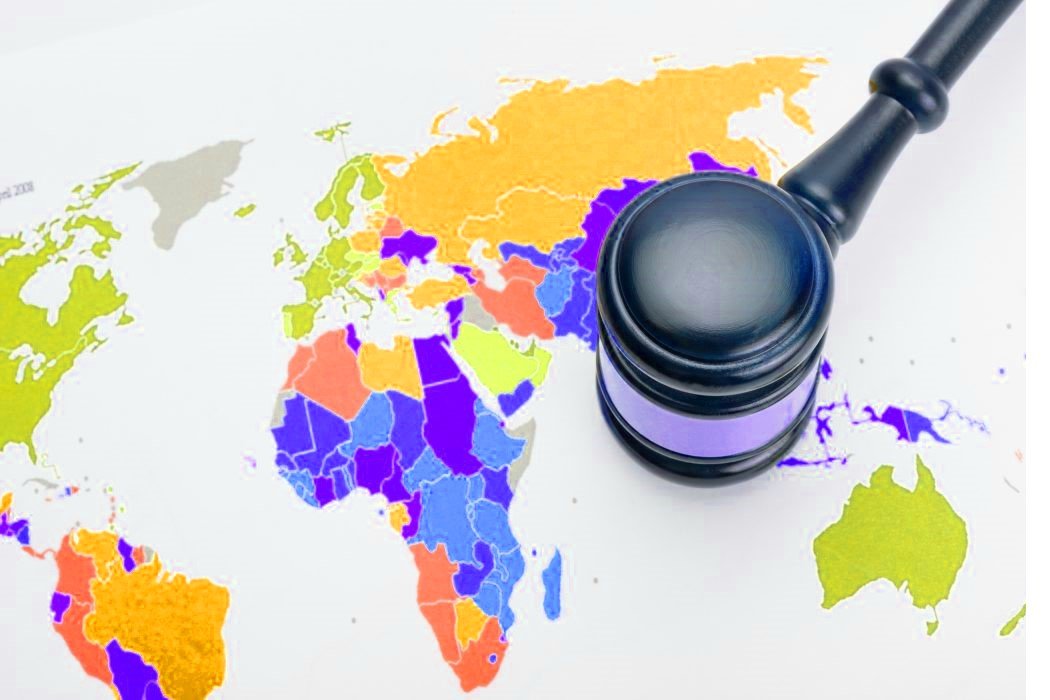How to Deal with Global Legal Issues in International Law

In today’s interconnected world, dealing with global legal issues in international law has become more complex and critical than ever before. As nations engage in cross-border activities, understanding and navigating the intricate web of international laws is essential for businesses, governments, and individuals alike. This article explores the nuances of handling global legal issues and provides practical strategies for addressing them.
Understanding Global Legal Issues
Definition and Scope
Global legal issues encompass a wide array of challenges that transcend national borders. From cross-border disputes to trade and investment laws, these issues demand a nuanced understanding of legal frameworks and their implications.
Common Types of Global Legal Issues
Cross-border Disputes
One of the primary challenges in international law is resolving disputes that span multiple jurisdictions. This may involve issues such as conflicting regulations, contractual disagreements, or intellectual property disputes.
Trade and Investment Laws
Navigating the complex web of international trade and investment laws is crucial for businesses operating on a global scale. Understanding the implications of treaties and agreements can mitigate legal risks.
Human Rights Violations
Addressing human rights violations on a global scale requires a comprehensive understanding of international human rights laws and the mechanisms in place for enforcement.
The Role of International Law
Overview of International Legal Frameworks
International law provides the foundation for governing relations between sovereign states. Treaties, conventions, and customary international law contribute to the creation of a cohesive legal framework that guides global interactions.

Organizations Involved in Global Legal Governance
United Nations
The United Nations plays a pivotal role in shaping and enforcing international law. Through its various agencies, the UN addresses a broad spectrum of global issues, from peacekeeping to sustainable development.
International Court of Justice
As the principal judicial organ of the UN, the International Court of Justice adjudicates legal disputes between states, contributing to the development and clarification of international law.
Strategies for Navigating Global Legal Issues
Importance of Legal Counsel
Engaging experienced legal counsel is crucial when dealing with global legal issues. Legal experts with an understanding of international law can provide valuable insights and guidance.
Utilizing Alternative Dispute Resolution Mechanisms
Mediation
Mediation offers a collaborative approach to dispute resolution, allowing parties to negotiate and find mutually acceptable solutions with the assistance of a neutral third party.
Arbitration
Arbitration provides a more formalized alternative to traditional litigation, offering a streamlined process for resolving disputes outside of the court system.
Compliance with International Treaties and Conventions
Adhering to international treaties and conventions is essential for fostering cooperation and avoiding legal pitfalls. Staying informed about evolving legal standards is crucial for compliance.
Case Studies
To better understand the practical application of strategies in dealing with global legal issues, let’s explore a few case studies that highlight successful resolutions and the lessons learned from these experiences.
Read More: Patients’ Rights and Medical Ethics in Healthcare Law
The Impact of Technological Advancements
Challenges and Opportunities in the Digital Age
The digital age brings both challenges and opportunities to the realm of international law. Addressing issues such as cybercrime and data privacy requires a proactive and adaptive legal framework.
Addressing Cybersecurity Concerns in International Law
Developing effective cybersecurity measures on a global scale necessitates collaboration between governments, businesses, and international organizations to safeguard against cyber threats.
Balancing Sovereignty and Global Cooperation
Examining the Tension Between National Interests and Global Cooperation
Navigating the delicate balance between protecting national interests and fostering global cooperation poses a continuous challenge for policymakers and legal practitioners.
Case Studies Illustrating Successful Collaboration
Examining instances where nations successfully collaborated to address global challenges provides valuable insights into effective diplomatic and legal strategies.
Regional Approaches to Legal Issues
Comparing Regional Legal Frameworks
Different regions adopt unique approaches to legal issues. The European Union serves as a notable model for regional cooperation, demonstrating the benefits of unified legal frameworks.
The European Union as a Model for Regional Cooperation
The EU’s legal framework not only streamlines cross-border activities but also promotes the harmonization of laws, facilitating a more cohesive and efficient regional legal system.
Emerging Trends in International Law
Environmental Law and Climate Change
As environmental challenges become increasingly global, international law must adapt to address issues like climate change. Collaborative efforts are essential for developing effective legal mechanisms.
Evolving Norms in Human Rights Protection
International norms regarding human rights continue to evolve. Understanding these changes is vital for legal professionals and policymakers working to protect and promote human rights on a global scale.
Preparing for the Future
The Role of Legal Education in Addressing Global Challenges
Equipping the next generation of legal professionals with the knowledge and skills to navigate global legal issues is crucial. Legal education should evolve to address the complexities of an interconnected world.
Recommendations for Policymakers and Legal Practitioners
Providing actionable recommendations for policymakers and legal practitioners ensures a proactive approach to addressing global legal challenges and fostering international cooperation.
Read More: The Role of Lawyers in the Legal System
Conclusion
In conclusion, dealing with global legal issues in international law requires a multifaceted approach. From understanding the nuances of international legal frameworks to employing effective strategies for dispute resolution, navigating the complexities of global legal landscapes demands diligence and expertise. As we move forward, staying abreast of emerging trends and collaborating on a global scale will be instrumental in overcoming the challenges posed by an interconnected world.
FAQs
How can businesses prepare for cross-border disputes?
Businesses should engage experienced legal counsel, understand international trade laws, and consider alternative dispute resolution methods.
What role does the United Nations play in international law?
The United Nations serves as a central organization, addressing a wide range of global issues and contributing to the development of international law.
Why is cybersecurity a concern in international law?
With increased digital interactions, addressing cybersecurity concerns is vital to protect against cyber threats that can have global implications.
How can nations balance national interests and global cooperation?
Striking a balance involves diplomatic efforts, collaboration, and understanding that global challenges often require collective solutions.
What is the significance of regional legal frameworks, such as the European Union’s? Regional frameworks, like the EU’s, streamline legal processes, promote cooperation, and serve as models for effective regional legal systems.











One Comment